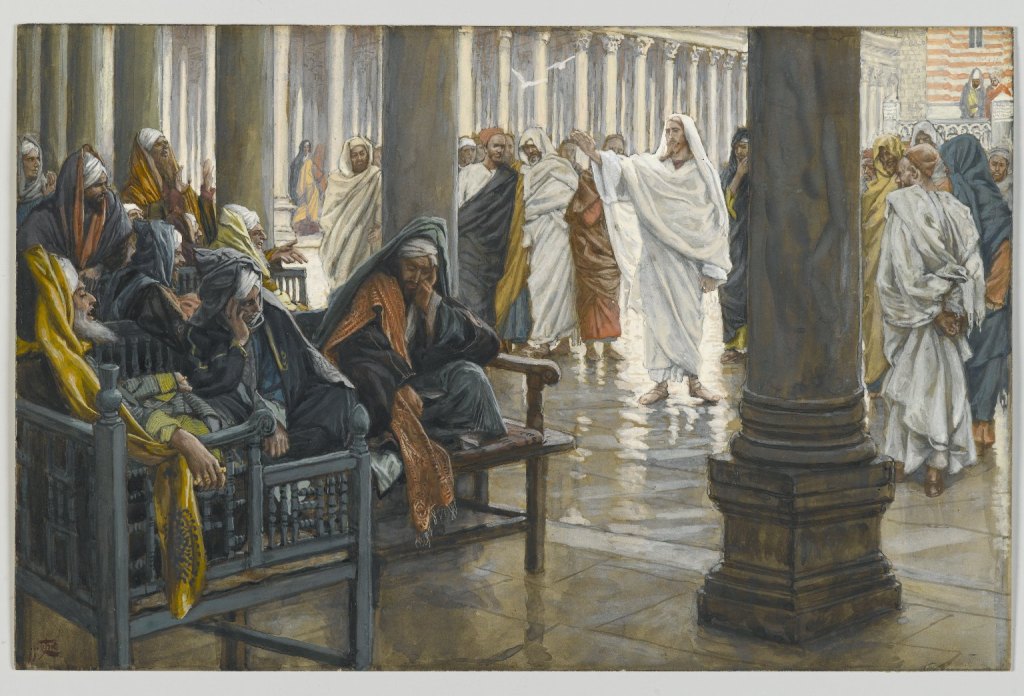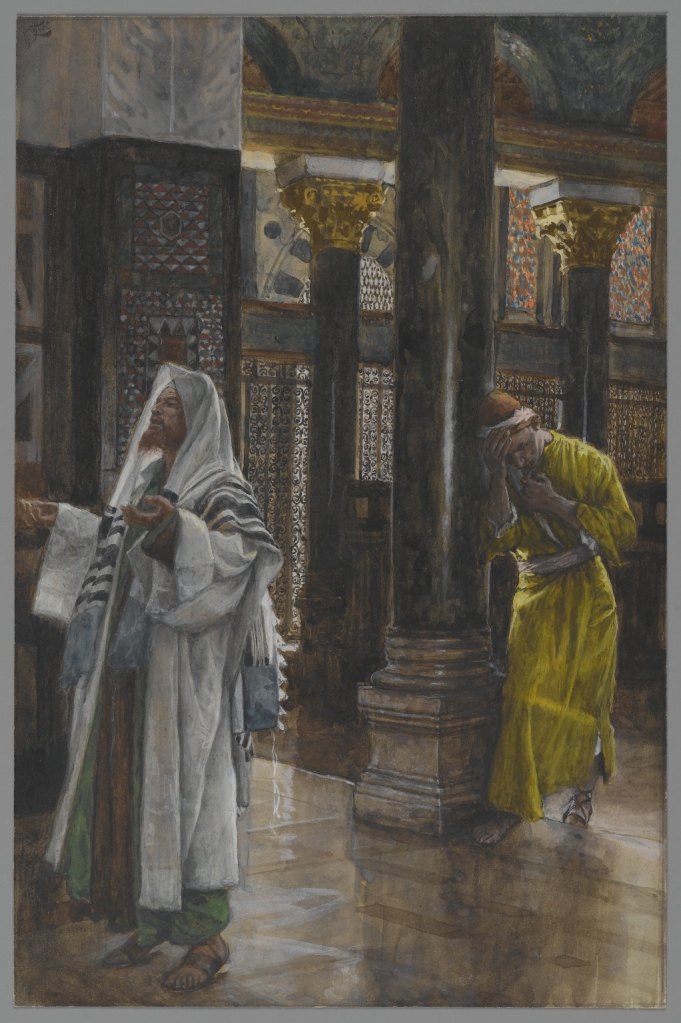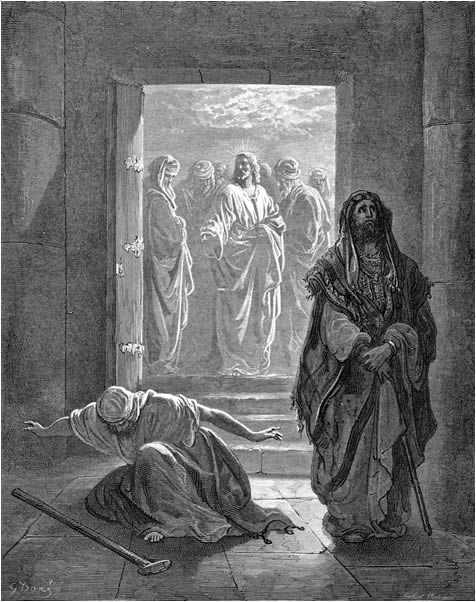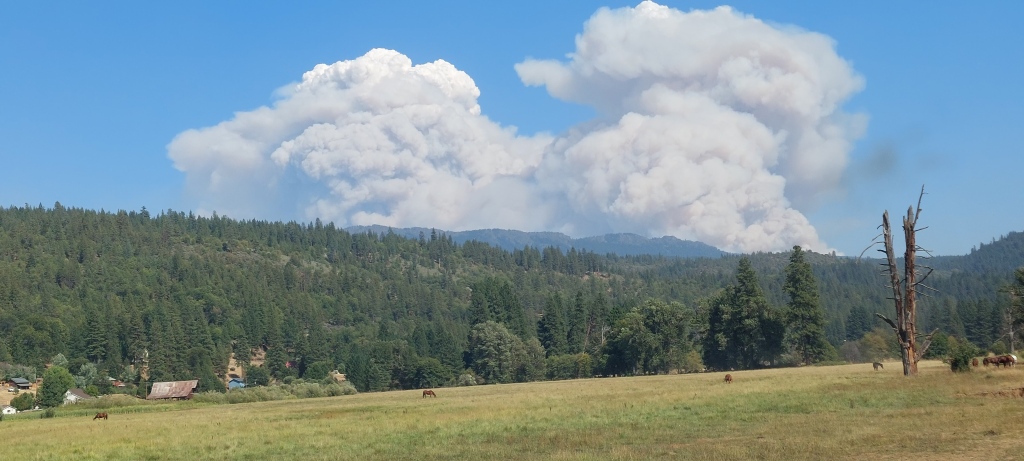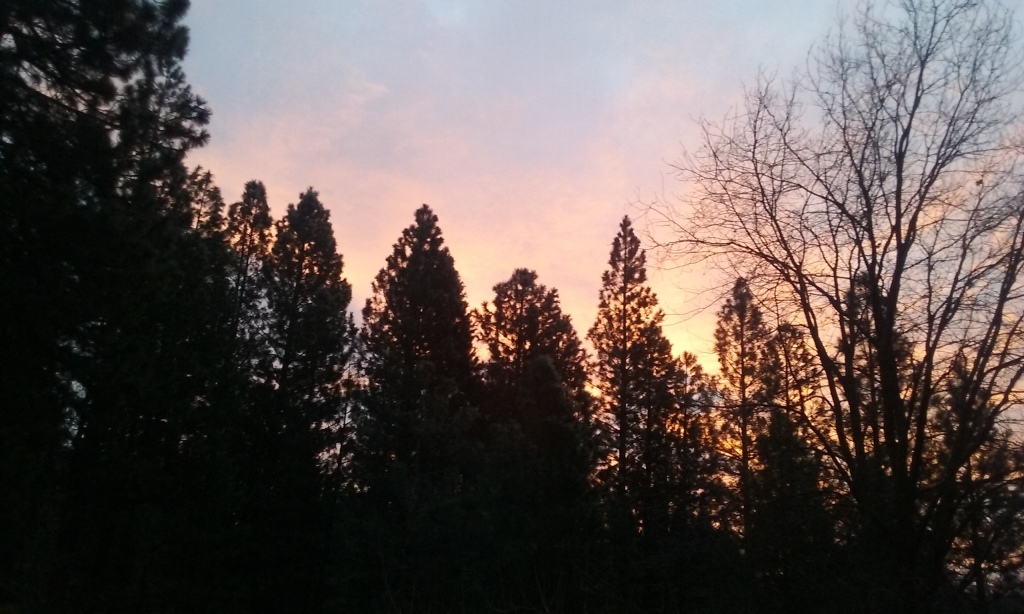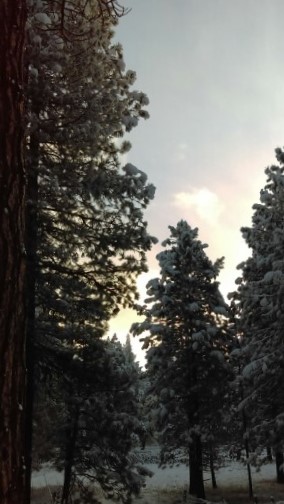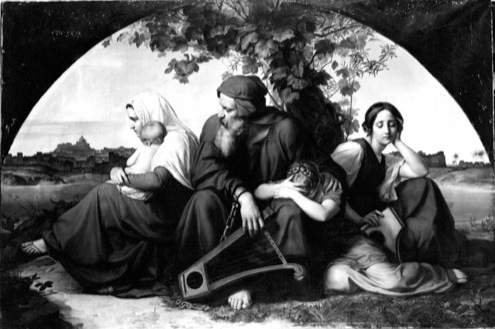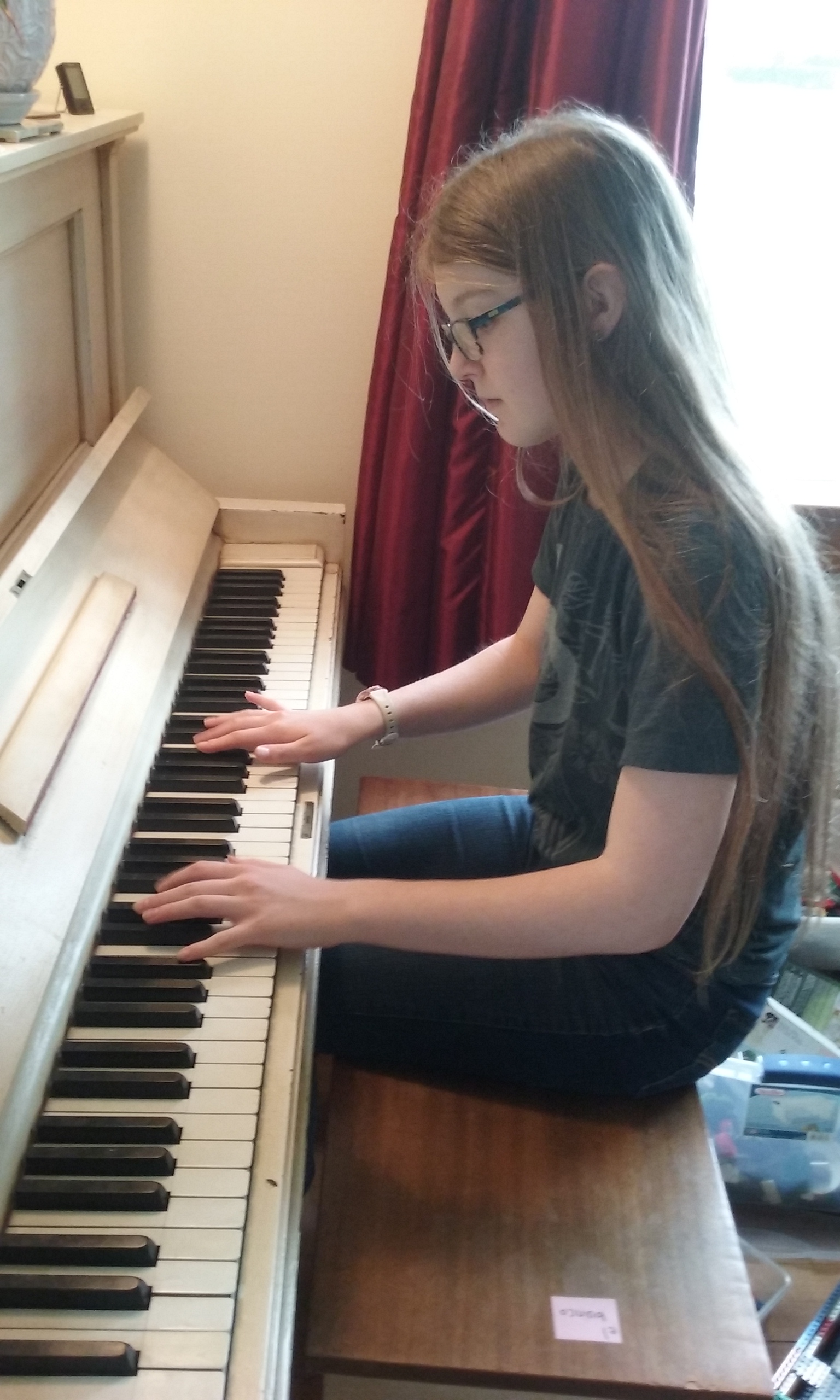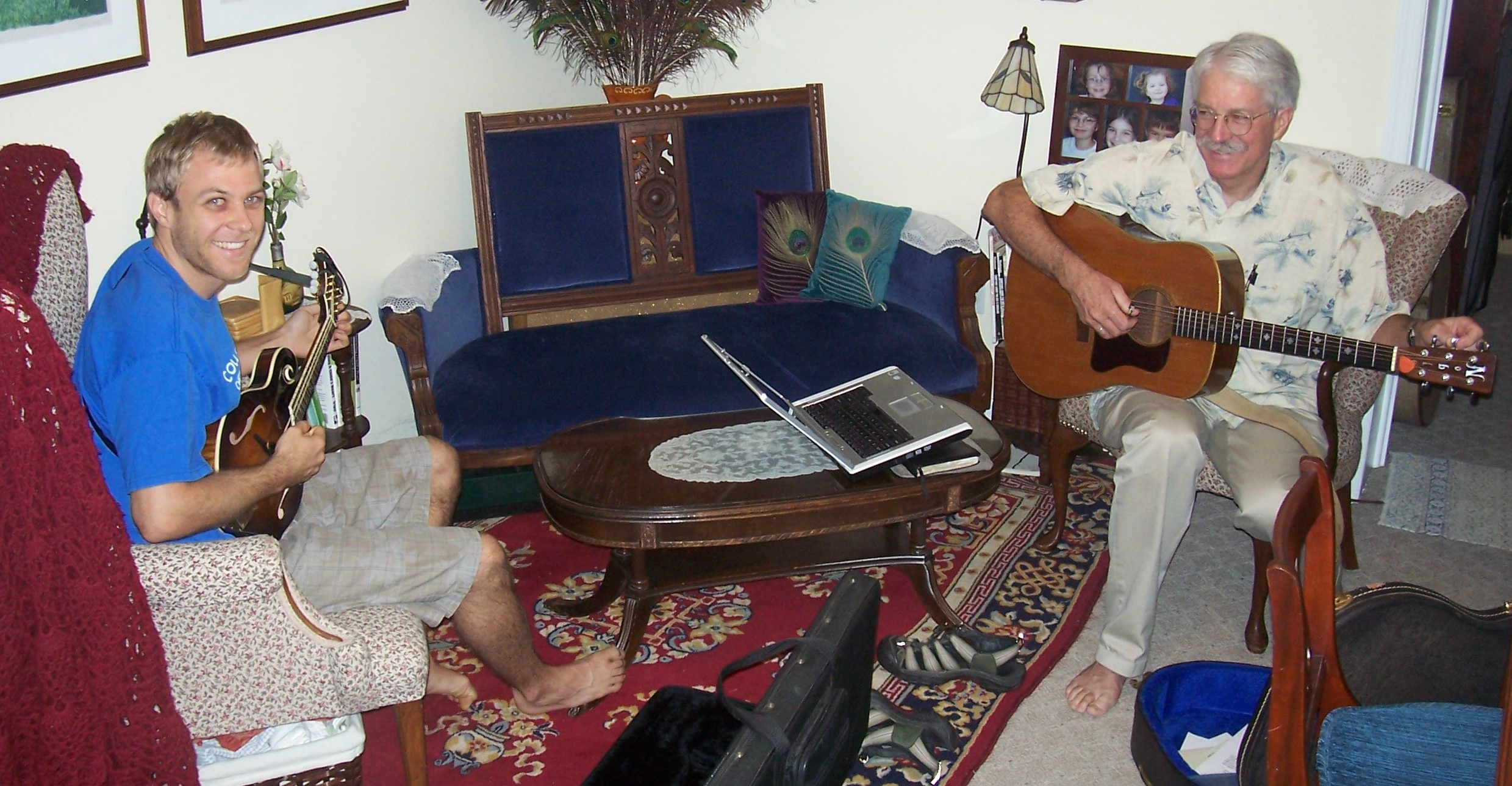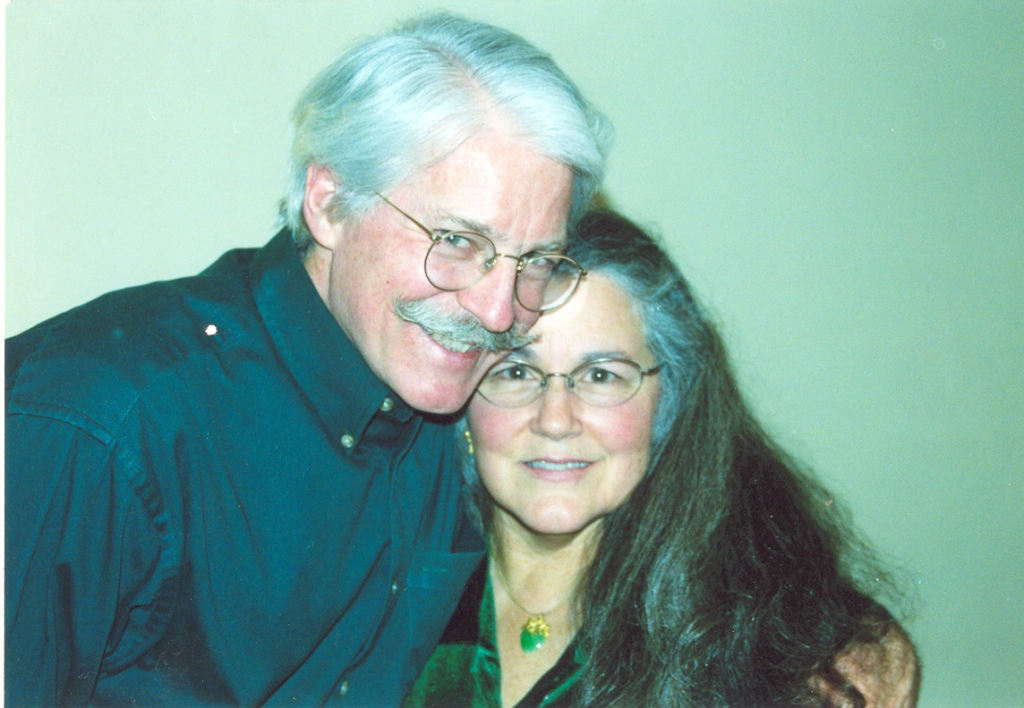“How shall we sing the Lord’s song in a foreign land?” groans the Psalmist (137:4). He groans for his friends, too. They remember every note of those songs they sang in Jerusalem, and even hiking up that hill for festivals. The Lord had brought their people to Jerusalem, and then moved in himself, to a special house where he set his name, where he met with them.
Now they were far from home, and God’s special house was a pile of burned rubble. Now, the bullies who killed their neighbors and trashed their hometown ordered, “Put down those water buckets and entertain us. Sing! Look, if you don’t know any of our favorites, sing something you know.” God’s people remembered with great pain the songs of the Lord, but how can they sing God’s songs like a nightclub act? Time to hang up our lyres on the willow trees and sit down weeping (vv.1-2). The Psalmist longs for the great, great day to come—regime change. Want to hear us sing? Just wait!
God’s people have been singing for generations, first, to celebrate victorious battles, and then in group worship. Like the groaning worshiper in Psalm 137, we long for the overthrow of the enemy culture around us. Like this exiled psalmist, we know that a great day is coming. God’s people sing still for joy, for duty, for loyalty, for encouragement, for teaching, for sorrow, for healing, for successful battles. We also remember a great battle victory—the day Jesus said, “It is finished,” died, and rose again. The church he built has been singing ever since, remembering and hoping. Finally, Jesus Christ will liberate us not only from a culture following other gods, but from our great, oppressive enemy, our sin. Jesus bore the penalty, but the evil still clings like the smell of smoke in a fire damaged kitchen. One day he’ll put it utterly to death. What a dance party we’ll have on its grave!
Many Christians can no longer sing in our churches, restrained by health concerns, government mandate, or both. Some churches sing on. Others adapt their music, though all these adaptations are losses. We sing, and we groan, praying God will speedily end this exile, so we can sing together again. This trouble will pass!
We’re not the first to have our public worship cramped. Those who sang Psalm 137 at home in Babylon still loved God and their homeland. They remembered Jerusalem, their lost city of songs, their highest joy. Far from home, they sang, and groaned. The church has long adapted its worship to surges of oppression and plague. Early Christians sang even in jail (Acts 16:25), and in catacombs. They sang together from their doorways and windows, when, in plague-ridden 17th century Milan, church meetings were too dangerous. Churches keep singing, adapting to health risks and suspension of liberties. Christians are singing still, but we could use some help.
God helps. The singer who grieves in Psalm 137 pioneered an answer for us. In private, he grieved, remembered, and hoped (vv1-2, 7-9); in public, he responded to danger and oppression with a clear conscience (vv.3-4). At home, he kept right on singing. We can profit from a closer look at what he did at home, in the micro-community of the household, even for a household of one.
- He plays “songs of Zion” on a musical instrument (v 5)
- He sings “songs of Zion” (v 6)
- He writes and publishes a new “song of Zion” for his fellow-exiles to sing, and they learn it (vv 1-9)
God’s people have been singing at home for generations, before the virus, before the Babylonian exile (Ps 118:15-16). The songs they sang together, they had learned and practiced at home. Congregational singing flows from many tributaries of singing from house to house. Believers in Babylon kept singing at home, looking forward to their renewal of congregational singing when the exile was over. Few of the exiles returned, but those who returned sang songs they learned at home from their parents and extended family.
How have Christian homes been doing with singing? Although Christians these days can assemble a playlist of worship favorites to hear, we’re singing at home less than our forebears did a century ago. But when the combined stresses of pandemic, government-mandated public health restrictions, and cold winter weather drive us indoors, we can rediscover the great duty and our delight of singing at home. When at last the plague has past, our congregational singing will be the richer for it.
Can you sing to God at home? These exiles did. One of them wrote a song and passed it around to his oppressed countrymen. God asked him to. God also had in mind future generations, from the returnees all the way down to us, inspiring and preserving Psalm 137, along with all the Psalms. Present-day exiles don’t need an adaptation of Ps 137; pick something so easy and familiar you can tackle without internet accompaniment. Think of the “Doxology,” or “Jesus Loves Me, This I Know.” Ask God for help. Ask a trusted friend or church leader to suggest a song. In this household, we sing a lovely a cappella adaptation of Ps 137:1, taught to us by a beloved seminary prof. It suits this part of the choir in exile! We’ll be glad to teach it to you. We’ve lived long enough to know a boatload of simple Scripture songs we’d be glad to teach. Send us an email, OK? Don’t phone; we might be singing. David Covington

